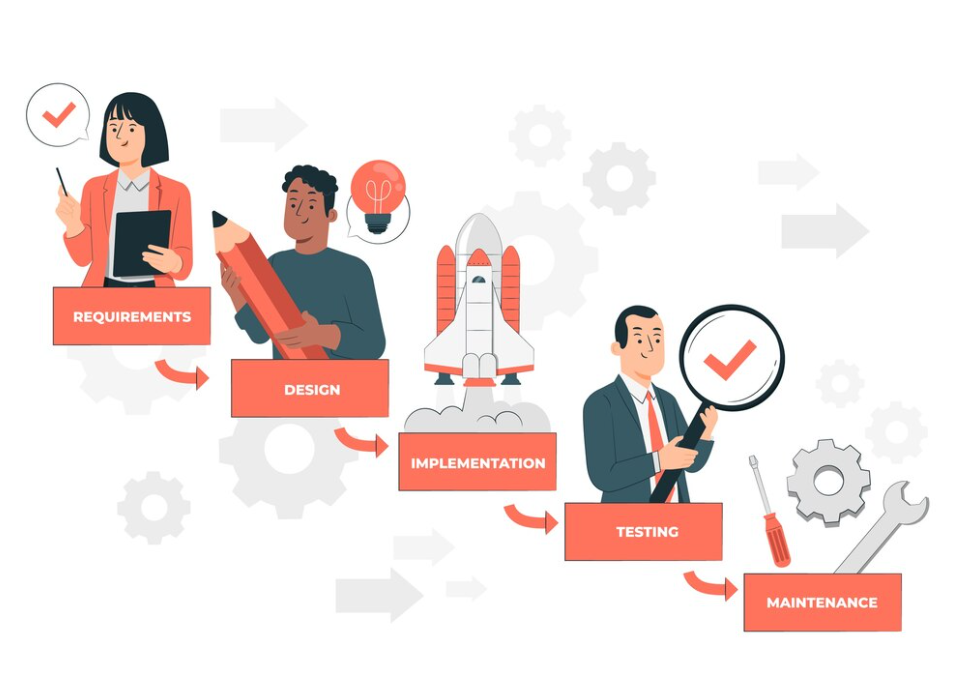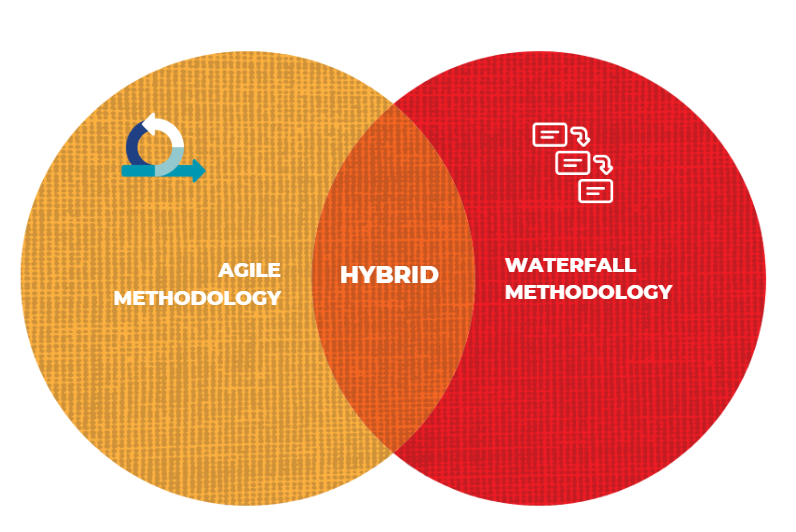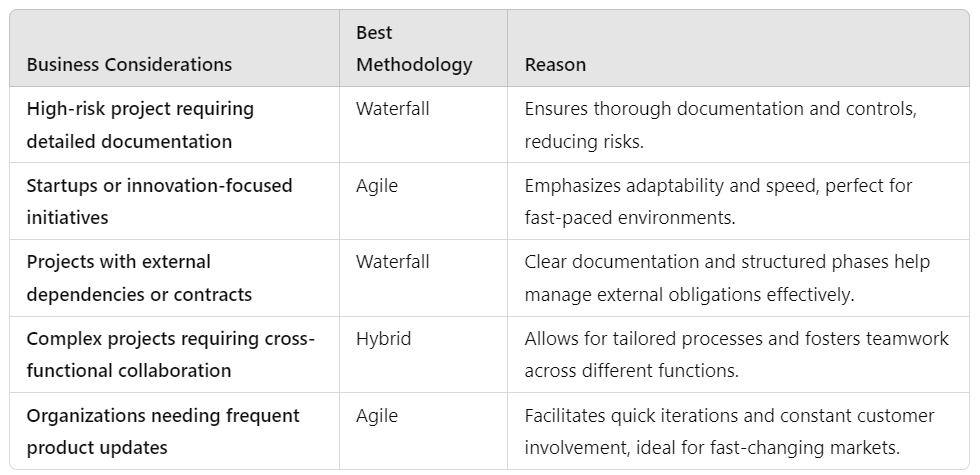Choosing the Right Path: A Complete Guide to Hybrid, Agile, and Waterfall Project Management

Comments are closed.

Project management has evolved significantly over the last few decades. The era of one-size-fits-all approaches is long gone, replaced by methodologies tailored to different project demands. Three of the most prominent methodologies today are Hybrid Project Management, Agile, and Waterfall. Each has its own strengths and challenges, making it essential to understand which approach best fits a specific project.

Agile methodology is a flexible and iterative approach to project management and software development that emphasizes collaboration, customer feedback, and rapid adaptation to change.
Agile methodologies, such as Scrum and Kanban, promote a dynamic and responsive work environment, making them ideal for projects where requirements are uncertain or rapidly evolving.
Waterfall methodology is a traditional project management approach that follows a linear and sequential process. It is structured in distinct phases, where each phase must be completed before moving on to the next.
Waterfall methodology, though is less flexible in adapting to changes or unforeseen challenges, is most effective for projects with well-defined requirements and low levels of uncertainty


Hybrid methodology in project management is an approach that combines elements of both traditional and Agile methodologies to create a customized framework that best fits the unique needs of a project.
It leverages the strengths of both methods while addressing their limitations.
Difference : Hybrid Vs Agile Vs Waterfall


Project management is the art of turning vision into reality, one milestone at a time.
Who should choose which Project Methodology : Based on Project Scope

“Project management is like juggling three balls – time, cost, and quality.
Who should choose which Project Methodology : Based on Business Considerations

The right project management methodology depends on the nature of your project, your team, and your client’s needs. Waterfall works best for structured, predictable projects where every detail is known upfront. Agile thrives in environments where constant iteration and feedback drive success. Finally, hybrid project management is the middle ground, blending structure with flexibility, making it perfect for complex projects with varied requirements.
In today’s dynamic project landscape, understanding these methodologies and when to use each can make the difference between a successful project and a chaotic one. Choose wisely, and your roadmap to success will be clearer than ever.
The Journey to effective Project Management begins with the right tool in hand